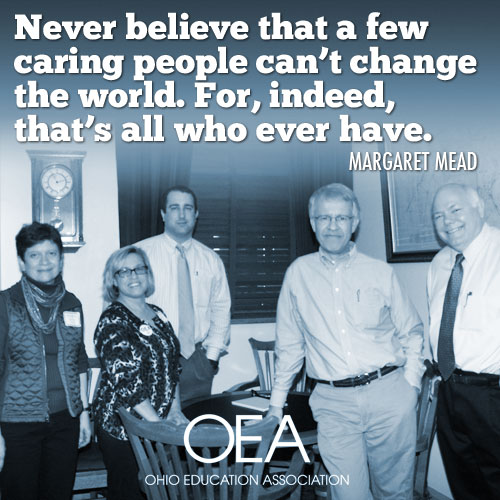 1. You can make a difference. In Toledo, Ohio, a single mother struggling to raise her son without the help of a workable child support system put an ad in a local newspaper to see if there were others who wanted to work for change. There were. Over time, they built the Association for Child Support Enforcement, which has helped change child support laws across the country.
1. You can make a difference. In Toledo, Ohio, a single mother struggling to raise her son without the help of a workable child support system put an ad in a local newspaper to see if there were others who wanted to work for change. There were. Over time, they built the Association for Child Support Enforcement, which has helped change child support laws across the country.
2. People working together can make a difference. Mothers Against Drunk Driving convinced dozens of states to toughen their drunk driving laws. As a result, the numbers of drunk driving deaths are lower nationwide.
3. People can change laws. History is full of people and groups that fought against great odds to make great changes: child labor laws, public schools, clean air and water laws, social security. These changes were not easy to achieve. They all took the active involvement – the lobbying – of thousands of people who felt something needed to be changed.
4. Lobbying is a democratic tradition. The act of telling our policymakers how to write and change our laws is at the very heart of our democratic system. It is an alternative to what has occurred in many other countries: tyranny or revolution. Lobbying has helped keep America’s democracy evolving over more than two centuries.
5. Lobbying helps find real solutions. People thinking creatively and asking their elected officials for support can generate innovative solutions that overcome the root causes of a problem. Through such work, abused children have found rapid placement in safe homes, and restaurants have been able to donate excess food to those in need.
6. Lobbying is easy. Lobbying is not some mysterious rite that takes years to master. You can learn how to lobby – whom to call, when to call, and what to say – in minutes. There are a few simple reporting rules that your nonprofit organization needs to follow, but they aren’t complicated.
7. Policy makers need your expertise. Few institutions are closer to the real problems of people than nonprofits and community groups. Every professional lobbyist will tell you that personal stories are powerful tools for change. People and policymakers can learn from your story.
8. Lobbying helps people. Everything that goes into a lobbying campaign – the research, the strategy planning, the phone calls and visits – will help fulfill your goal whether it be finding a cure for cancer, beautifying the local park, or some other cause that helps people.
9. The views of local nonprofits are important. Because local governments often decide how to spend federal and state money, local nonprofits have even more responsibility to tell local policymakers what is needed and what will work. Your lobbying can have an immediate, concrete impact on people in need.
10. Lobbying advances your cause and builds public trust. Building public trust is essential to nonprofit organizations and lobbying helps you to gain it by increasing your organization’s visibility. Just as raising funds and recruiting volunteers are important to achieving your organization’s mission, so is lobbying.
Adapted from “Ten Reasons to Lobby for Your Cause” from Center for Lobbying in the Public Interest at www.clpi.org


